Latest Write Ups

THE DANGER OF AUTOMATION BIAS IN HEALTHCARE
By: Dr. Chidiebere Nwachukwu Ebube
There are stories of drivers who followed their navigation straight into a ditch,
or worse, a lake, despite every instinct telling them “this can't be right.”
That's automation bias - simply put, trusting a machine so much,
we shut down our own judgment.
Now imagine that happening in healthcare.
A clinician defers to an AI's diagnosis...
A nurse ignores their gut because the algorithm said “all clear”...
A fatal symptom goes unnoticed because the system didn't flag it.
With the explosion of AI in healthcare, we're racing to automate diagnosis, triage, treatment plans, and even life-or-death decisions.
But here's the truth:
The smarter the AI, the more we risk over-trusting it.
And in healthcare, that can cost lives.
Studies show clinicians are more likely to override their training when the AI appears confident, even when it’s wrong.
So how do we prevent this?
-Build AI systems that are transparent, explainable,
and designed to augment, not replace
-Train clinicians to question AI outputs, not just accept them
-Design technology that complements clinical reasoning
Because in healthcare, it's not just about building powerful tools.
It's about building trustworthy, transparent, and human-aware tools.
The goal isn't to replace the clinician.
The goal is to make them smarter, safer, and supported.
-Let's innovate, but not blindly.
-Let's trust tech, but not more than we trust reason.

Founders in HealthTech, we need to talk.
Everyone's building another EMR.
Another triage chatbot.
Another AI assistant for the same old problems.
Meanwhile, real clinical pain points go untouched.
Let's talk about the blind spots:
-
Labour Monitoring AI
Why don't we have tools that:- Learn from real-time labour data
- Predict fetal distress before it becomes clinical
- Alert the team early enough to change outcomes?
-
Intraoperative Blood Loss Estimation
Still relying on visual guesswork and sponges?
We need real-time, automated, non-invasive tracking systems. Not in 10 years - now.
Where's the AI that detects fatal anaesthetic reactions and adverse events before they happen?
The 2 times I have been a surgical patient myself, I was more terrified of the anaesthesia, than I was of the surgery itself. I still feel we are relying too heavily on fallible human Judgement. With where technology is today, anaesthetists monitoring the monitor is no longer enough. We need real-time assessments involving more hyperparameters than anaesthetists can possibly keep up with, to predict adverse events intra-op, in real time, before they become apparent as clinical signs on the monitor or in the patient.
These solutions are overdue..
This is why we need more than coders in the room.
We need clinicians who've stood in the OR chaos, run codes, understand technology, and know where technology could actually save lives.
To medtech founders, investors, and innovators:
Let's stop racing to rebuild the same EMR.
Let's solve the harder problems. The unsexy, critical, life-saving ones.
That's where the real breakthroughs lie.

What Makes Medical Software Development So Unique?
Having worked across clinical settings and now exploring digital
health and AI, one thing stands out clearly: medical software development
isn't just another tech project; it's a careful balancing act between
innovation and responsibility.
Unlike other software domains, building tools for healthcare involves:
- Navigating complex clinical workflows
- Complying with strict regulatory standards (e.g. SaMD, HIPAA, HL7, ISO 13485)
- Earning the trust of clinicians and patients alike
- Ensuring data accuracy, safety, and validation — lives may literally depend on it.
What fascinates me is how cross-functional collaboration
becomes non-negotiable. Engineers, clinicians, designers,
product managers, and regulatory experts all need to speak the
same language — or at least understand each other’s stakes.
The goal isn’t just building usable tech — it’s creating tools that improve outcomes, empower providers, and fit seamlessly into the fast-paced, high-stakes world of healthcare.
For anyone moving into this space: empathy for the end user, respect for clinical nuance, and a mindset for safety-first innovation are key.
All of these complexities become easier to manage when you have a Product Manager with a medical background and an understanding of this unique landscape.

Will AI and Technology Replace Doctors?
As a medical doctor with deep AI literacy, I find it both fascinating and unsettling
what AI can already do in various aspects of healthcare. But here's my take:
replacement isn’t the future, collaboration is.
Doctors in the AI era will increasingly need to work alongside AI tools to enhance diagnostic
precision, improve clinical decision-making, and make more accurate predictions.
Like it or not, AI has already improved medicine and demystified much of what once relied solely
on human intuition.
No single doctor can store and instantly recall the vast breadth of medical knowledge the way
a well-trained AI model can. However, and this is key, AI tools do not hold a license to practice medicine,
nor can they be held legally or ethically responsible for clinical outcomes. And I don’t foresee any
AI company stepping up to accept full liability either.
So, for now, the human-AI interface remains essential. But here’s the real shift coming…
As AI augments physician efficiency, fewer doctors may be needed to handle the same patient volume.
While this won’t be an immediate issue (given the current physician shortfall), in the next decade or two,
we may not need to train as many doctors as we do today—if tech innovation continues its current trajectory.
What do you think?
- Will AI shift the supply-demand balance in healthcare?
- Should medical training evolve to reflect this AI integration?

WHY EVERY HEALTHTECH TEAM NEEDS A DOCTOR WITH AI & PROJECT MANAGEMENT SKILLS.
By: Dr. Chidiebere Nwachukwu Ebube
In a recent conversation with a medtech company, I was asked how I think I would fit into the team. Here’s the answer I gave in a more fleshed out and longer format.
Having a physician with AI/ML literacy and project management skills on your Software as a Medical Device (SaMD) team isn't just a nice-to-have; it's a game changer.
- 1. Clinical-Technical Bridge: I translate complex clinical workflows into actionable system requirements, ensuring your AI model outputs are not just technically sound, but clinically useful.
- 2. User-Centered Design: I contribute to intuitive UI/UX grounded in real clinical environments, enhancing adoption and minimizing design missteps.
- 3. Clinical Validation: I define performance metrics beyond accuracy and guide real-world validation to ensure the model works in patient care settings.
- 4. Regulatory & Ethical Oversight: I understand global SaMD frameworks (FDA, Health Canada, EU MDR), flag bias or explainability issues, and assist with regulatory submissions.
- 5. Cross-Functional Collaboration: I speak both clinical and technical languages, helping teams collaborate more effectively.
- 6. Product-Market Fit: I assess clinical relevance, system integration, and reimbursement alignment to guide strategy.
- 7. Trust & Credibility: Physicians on your team build confidence with hospitals, investors, and regulators.
Let me bring this home:
- A triage chatbot team needs a physician to design escalation protocols.
- A radiology AI team thrives with clinician-led feedback loops.
- A chronic care SaMD app gets traction with guideline-based input.
Bottom line: A doctor like me, equipped with AI, ML, and PM expertise, isn’t just a subject matter expert. I’m a strategic asset — bridging gaps, de-risking development, and powering clinical innovation.

Building Strong Project Teams
By: Dr. Chidiebere Nwachukwu Ebube
A great project manager knows that a strong, cohesive team is the key to project success. While we focus on timelines, budgets, and deliverables, it's equally important to nurture the human aspect of our teams. Here's how I believe we can build more effective teams:
- Trust: Establishing trust from the get-go ensures that each team member feels comfortable contributing their ideas and expertise without hesitation.
- Clear Roles & Responsibilities: Clarity is essential for efficiency. When each team member knows their role, and what is expected, projects run smoother and with fewer misunderstandings.
- Collaboration: Encouraging a collaborative mindset allows the team to leverage diverse perspectives and solve problems more creatively.
- Recognition & Appreciation: Acknowledging individual contributions not only boosts morale but also motivates the entire team to continue striving for excellence.
- Flexibility: Things rarely go according to plan. Being flexible and adaptable to changes ensures that the team can pivot when necessary without losing momentum.
In the end, a strong team is one that’s motivated, aligned, and supported by a leader who fosters a positive, growth-oriented environment.

The Power of Clear Communication in Project Management
By: Dr. Chidiebere Nwachukwu Ebube
Over the years, I’ve learned that clear communication is often the difference between a smooth project and a messy one.
No matter how capable your team is or how solid the plan looks on paper, things start to fall apart when communication breaks down. Here’s why getting it right matters:
- It sets the tone and expectations: When everyone understands their role, what’s expected, and when it’s due, there’s less confusion and more accountability.
- It keeps teams connected: Regular check-ins and open conversations help build trust and make it easier for people to work together—even when things get tough.
- It reduces avoidable mistakes: Misunderstandings waste time. Clear communication helps teams catch issues early and avoid rework.
- It creates space for good ideas: When people feel heard, they’re more likely to speak up with solutions—not just problems.
As project managers, it’s up to us to keep communication clear and consistent—with our teams, stakeholders, and clients. It’s not always easy, but it’s always worth the effort.

The Importance of Adaptability in Project Management
By: Dr. Chidiebere Nwachukwu Ebube
In the world of project management, adaptability isn’t just a nice-to-have – it’s a must-have.
No matter how much planning goes into a project, there will always be unexpected challenges, changes in scope, or unforeseen obstacles. Here’s how I’ve learned to embrace adaptability as a key component of successful project management:
- 🔄 Stay Open to Change: Projects often evolve, and being open to those changes ensures you’re not stuck in old ways. It’s about making course corrections when necessary to keep the project moving forward.
- 📊 Flexibility with Processes: While processes are important, being too rigid can slow things down. I focus on tailoring my approach based on the project’s needs and the team’s strengths.
- 🎯 Problem-Solving Mindset: Every challenge is an opportunity for creative problem-solving. When things don’t go as planned, I work with my team to find solutions that keep the project on track and moving toward the end goal.
- ⚙️ Learning from Experience: Adaptability also comes from the lessons we learn along the way. I take every project – whether it’s a success or a challenge – as an opportunity to grow and improve.
In project management, change is inevitable. But with adaptability, we can transform challenges into stepping stones for success.

The Art of Effective Team Leadership in Project Management
By: Dr. Chidiebere Nwachukwu Ebube
A successful project doesn’t happen by chance – it’s the result of strong leadership, clear communication, and a cohesive team working toward a common goal.
One of the most rewarding aspects of project management is leading diverse teams and helping them thrive. Here’s how I approach effective team leadership:
- Empower Team Members: Every team member brings unique strengths to the table. I focus on creating an environment where individuals feel empowered to contribute their ideas and skills.
- Clear Expectations: Setting clear, realistic expectations from the beginning sets the tone for the project. This ensures that everyone knows their role, timeline, and goals, reducing confusion down the road.
- Open Communication: I prioritize open, transparent communication – it helps in building trust and fosters a collaborative atmosphere where everyone feels heard and valued.
- Mentorship and Growth: I believe in growing the team as much as I grow the project. Providing opportunities for skill development and offering constructive feedback helps individuals advance in their careers while contributing to project success.
In the end, leadership is about fostering a culture of collaboration and growth, and that’s what leads to successful project outcomes.
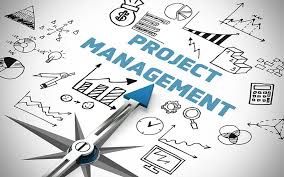
The Power of Adaptability in Project Management
By: Dr. Chidiebere Nwachukwu Ebube
In the fast-paced world of project management, one thing is certain: change is inevitable. Whether it’s shifting project goals, changing client needs, or unexpected roadblocks, adaptability is key to staying on course.
I’ve learned that being adaptable doesn’t mean abandoning a plan – it means being flexible enough to pivot when necessary, while still keeping the overall objectives in sight. Here’s how I approach adaptability:
- Embrace Flexibility: While having a plan is essential, being open to adjusting the approach as circumstances evolve is just as important. The ability to adapt keeps projects moving forward, even when things don’t go as expected.
- Focus on the Goal: Changes might happen, but as a project manager, my role is to keep the focus on the end goal and ensure the team remains aligned with the bigger picture.
- Learn and Grow: Every challenge presents a learning opportunity. By staying adaptable, I can implement new strategies that enhance future projects.
In today’s dynamic work environment, adaptability is one of the strongest assets a project manager can possess.

Building Strong Teams for Project Success
By: Dr. Chidiebere Nwachukwu Ebube
One of the greatest lessons I’ve learned in my project management journey is that success is never achieved alone – it’s about building and leading a team that collaborates effectively, supports each other, and brings diverse perspectives to the table.
Here’s what I focus on when building strong project teams:
- Clear Communication: Open and transparent communication keeps everyone on the same page, ensuring that goals, timelines, and expectations are aligned.
- Empowerment: I believe in empowering team members by trusting them to take ownership of their tasks, which fosters accountability and a sense of responsibility.
- Diverse Skill Sets: A team with a mix of skills, backgrounds, and experiences leads to creative solutions and helps tackle challenges from different angles.
- Continuous Learning: Encouraging personal and professional growth within the team helps keep everyone motivated and enhances overall project performance.
A strong, collaborative team is often the difference between a good project and a great one. The results speak for themselves when everyone works towards a common goal.
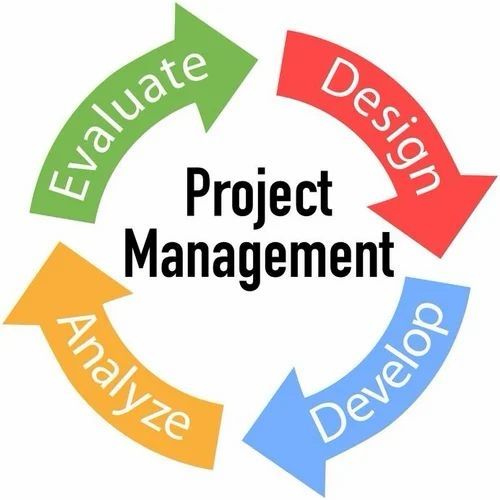
Turning Challenges into Opportunities in Project Management
By: Dr. Chidiebere Nwachukwu Ebube
Every project comes with its own set of challenges – tight deadlines, limited resources, or shifting priorities. As a Project Manager, I've learned that the key to success is not avoiding these challenges, but rather turning them into opportunities for growth and improvement.
Here’s how I approach challenges in my projects:
- Identify Root Causes: Instead of merely addressing surface issues, I always dig deeper to understand the core of the challenge. This allows me to find long-term solutions, not just quick fixes.
- Adapt and Innovate: Flexibility is critical in project management. When unexpected changes occur, I rely on agile methodologies to pivot and adapt, ensuring the project stays on track while innovating along the way.
- Collaborate and Seek Expertise: No project manager works in isolation. I engage with my team, stakeholders, and even external experts to brainstorm solutions and get fresh perspectives.
The ability to turn challenges into opportunities is what separates great project managers from the rest. By staying calm, adapting quickly, and collaborating effectively, we not only keep projects moving forward but also create value.
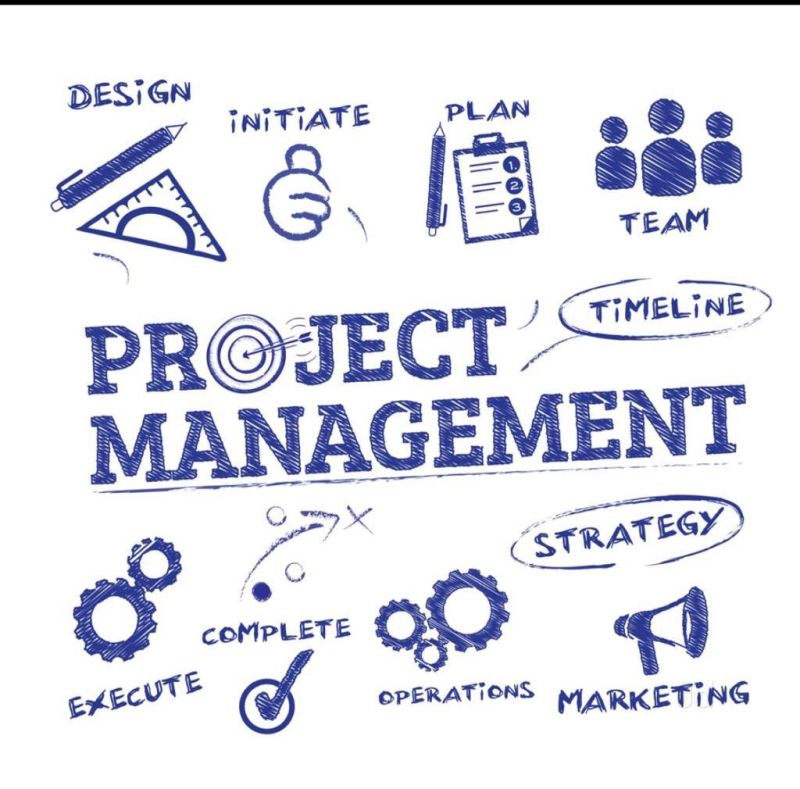
The Power of Effective Team Leadership in Project Management
By: Dr. Chidiebere Nwachukwu Ebube
In project management, it's not just about managing tasks – it’s about leading people to achieve common goals. Over the years, I’ve had the privilege of leading teams across diverse projects in the healthcare, recruitment, and technology sectors, and one thing is clear: effective leadership is the cornerstone of any successful project.
Here are a few leadership strategies I’ve found invaluable in my project management journey:
- Fostering Open Communication: Encouraging transparent dialogue ensures that challenges are addressed early, ideas flow freely, and the team stays aligned on the project vision.
- Empowering Team Members: Delegating responsibility not only boosts team morale but also enhances performance by leveraging each individual’s unique strengths.
- Celebrating Milestones: Acknowledging progress – big or small – motivates teams to keep pushing forward, even when the road ahead seems long.
As a PMP-certified project manager with experience leading cross-functional teams, I understand that the best results come when you prioritize collaboration, trust, and support. It’s about inspiring your team, not just managing them.
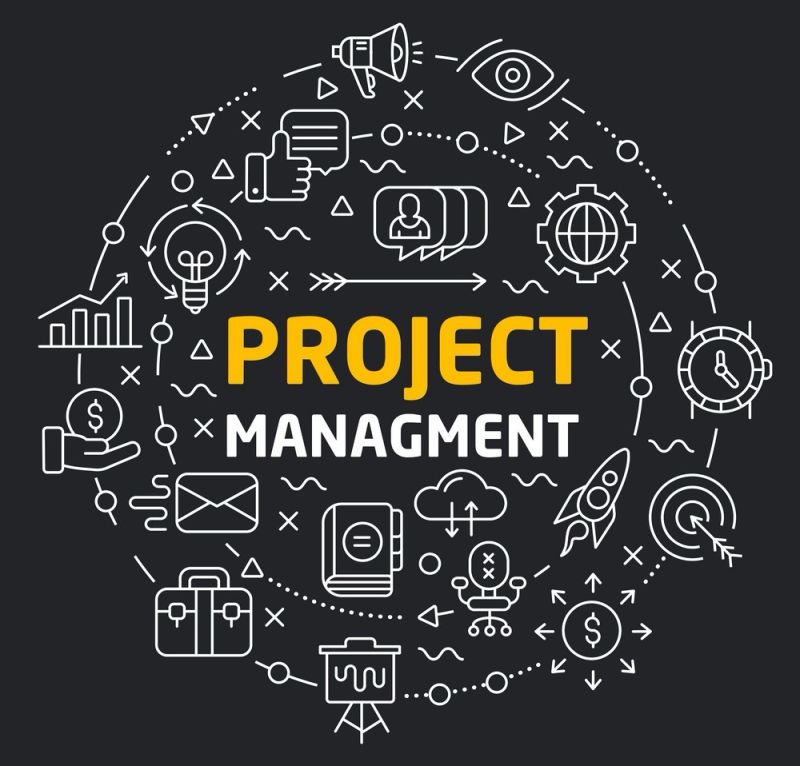
The Art of Effective Project Management: Turning Vision Into Reality
By: Dr. Chidiebere Nwachukwu Ebube
One of the most exciting aspects of project management is transforming a vision into a tangible outcome. With over 5 years of experience leading diverse projects in sectors ranging from international recruitment to digital solutions, I’ve learned that the key to success lies in clarity, planning, and execution.
Here are 3 principles that drive my approach to successful project delivery:
- Clear Objectives & Scope: Starting with well-defined goals and boundaries ensures the project stays on track. It also helps manage expectations and avoid scope creep.
- Data-Driven Decision Making: In today’s world, data is king. By leveraging analytics and project management tools like Jira and Trello, we can make informed decisions that align with business objectives.
- Continuous Improvement: Every project provides lessons for the next one. Reflecting on outcomes, celebrating wins, and addressing challenges are all part of the learning cycle that leads to better results over time.
As PMP-certified and experienced in both Agile and Waterfall methodologies, I’m always looking for new ways to improve processes, increase efficiency, and lead teams to success.

WHAT TYPE OF PM ARE YOU, WHEN IT ALL GOES SOUTH?
By: Dr. Chidiebere Nwachukwu Ebube
It’s easy to celebrate, pop champagnes and receive accolades after a successful project execution. But what happens when your project fails? How do you take it?
Do you take responsibility, appraise the entire process, get feedback and document lessons learned for the future to prevent a recurrence? Or do you try to blame your sponsor, steering committee, product owner, client, or project team members?
My medical background did well in teaching us that a doctor is in charge and is responsible for the patient’s outcome—just like a PM.
So while we graciously distribute accolades when there is one to be earned, we often shoulder the entire responsibility for a negative outcome.
- We do a postmortem review of the case.
- We get punished when medicolegal issues arise.
- We don’t blame the nurse or gadgets.
- We basically take the fall for the team.
This may not be a fancy truth, but it is a priceless transferable skill and mindset that a doctor brings into the world of project management.
So beyond the drive to be technically sound in managing projects, a good project manager should endeavor to cultivate the mental and emotional fortitude required to withstand and handle negative project outcomes.

YOU DON’T HAVE TO SAY YES TO EVERY PROJECT
By: Dr. Chidiebere Nwachukwu Ebube
As project managers, we’re often hardwired to move mountains and deliver results. But sometimes, the bravest thing you can do is say “no.”
Senior management may miscalculate feasibility or have lingering doubts themselves—so the answer must not always be “yes” to every proposal.
Sometimes, the right decision is to transition from planning phase to closing phase or even postpone the project entirely. There are many factors that justify such moves.
It’s your responsibility to intelligently communicate with the steering committee, sponsor, or project owner why proceeding (at least at this time) may not be in the organization’s best interest.
In hindsight, you might just save the company millions—and gain lasting respect for your integrity and foresight.
A good surgeon knows when and how to cut—but a great surgeon knows when not to.

HOW BEING A DOCTOR CAN PREPARE YOU TO BE A PROJECT MANAGER
By: Dr. Chidiebere Nwachukwu Ebube
Doctors possess a treasure trove of transferable skills that seamlessly align with the demands of project management:
- Leadership: Just as doctors lead chaotic medical teams, project managers must lead projects with clarity and direction.
- Responsibility: Doctors own the outcome. PMs must do the same, driving success despite odds.
- Attention to Detail: A single oversight in medicine or projects can be costly—precision matters.
- Planning & Preparation: Surgical prep mirrors project initiation—both determine the outcome before execution begins.
- Teamwork: Like a medical team, project teams thrive on synergy, collaboration, and mutual respect.
- Post-Mortems: In both fields, reflective reviews are essential for future success and prevention of recurring failures.
There's more where that came from, but this is a solid glimpse into why doctors make incredible project managers. Hope it resonates!

THE HUMAN RISK IN PROJECT MANAGEMENT
By: Dr. Chidiebere Nwachukwu Ebube
If every team member and stakeholder were robots running perfect code, project management would be a breeze. But alas, humans are involved—and that’s where the real challenge begins.
From egos and illnesses to emotional swings and unexpected leave, managing people is the most unpredictable aspect of any project. And the impact is profound.
- Low-quality output from demotivated team members
- Conflicting agendas and interpersonal disputes
- Family issues affecting performance
- Unforeseen absences and mental burnout
This is why a PM's job is more than following checklists—it's about emotional intelligence, conflict resolution, and leadership. The human factor is one of the biggest sources of unknown risks in project delivery.
So if you’re steering a team, focus not just on tasks, but on the people behind them. That’s where true project success lives.
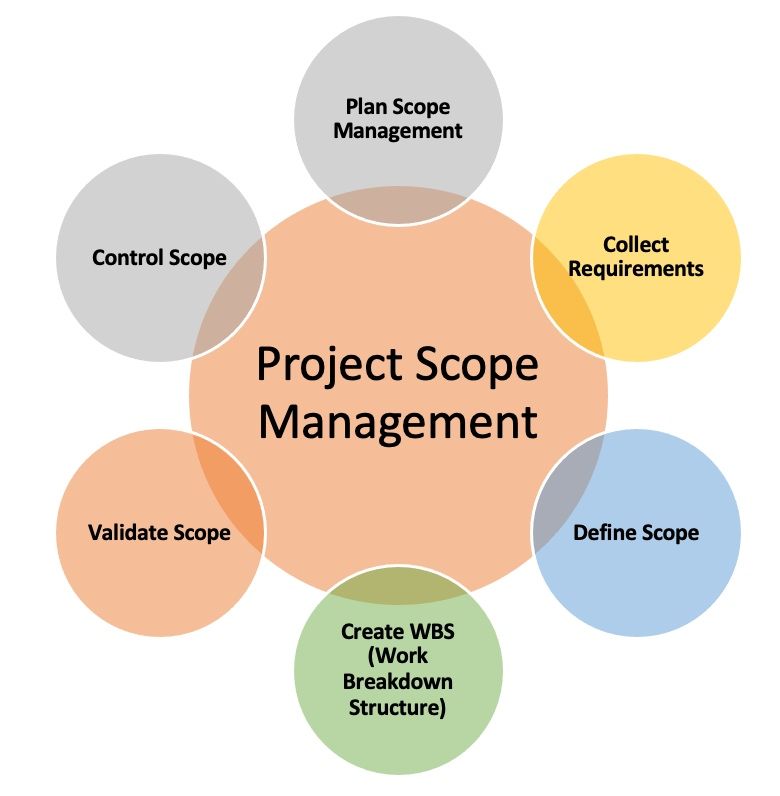
HOW BAD PROJECT MANAGEMENT PRACTICE RUINED MY PARENTS’ ANNIVERSARY GIFT
By: Dr. Chidiebere Nwachukwu Ebube
Back in my university days, I had a dream—to gift my parents a stunning silver jubilee card. Something they'd never throw away. But the reality? It was a disaster.
I hired someone to create the card, shared my big dreamy ideas, paid handsomely, and left it at that. The result? A card so bad, I couldn’t show my parents. It never saw the light of day.
- No scope defined
- No clear requirements
- No success criteria
- Poor communication throughout
- No monitoring or control
That experience taught me a vital project management lesson: execution without proper planning is a recipe for failure. At Vidan Solutions, I now emphasize detailed planning, clear deliverables, and over-communication—even for the smallest task.
Because in project management, clarity is everything. Avoid the “what I ordered vs what I got” nightmare—plan well, communicate better.
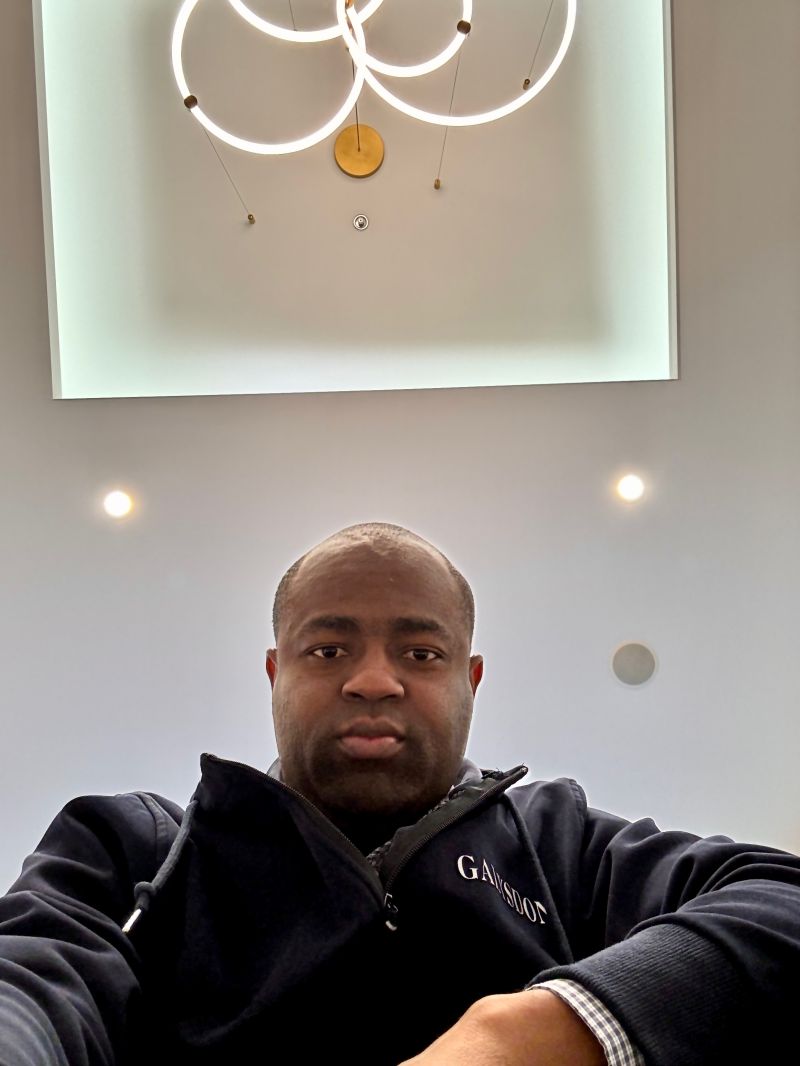
THE BIGGEST CHALLENGE OF A NEW PROJECT MANAGER
By: Dr. Chidiebere Nwachukwu Ebube
Fresh out of my PMP certification, I was hesitant to dive into corporate project environments. I had the theory, but translating it into real-world impact? That was scary.
Like many new PMs, I had tunnel vision—focused solely on passing the exam. But reality hits after certification: knowing the PMBOK guide is one thing, applying it in dynamic organizations is another.
I asked my trainer: *“What’s the biggest struggle new PMs face?”* His answer?
“New PMs often struggle to merge textbook PM knowledge with their new organization's culture.”
That hit hard—and true. I learned to take a step back, study the company’s existing project approach, and adapt before trying to change anything.
- Don’t shake the system too early
- Understand internal politics and workflows
- Earn your credibility before initiating change
It’s about strategy and patience. Once you’ve gained trust, then you can start phasing in better practices.
I also recommend @Adrianer Girdler’s “Slay Project” course—it’s a solid bridge from PMP theory to practical execution.
To every new PM out there: don’t just lead—observe, adapt, then influence.
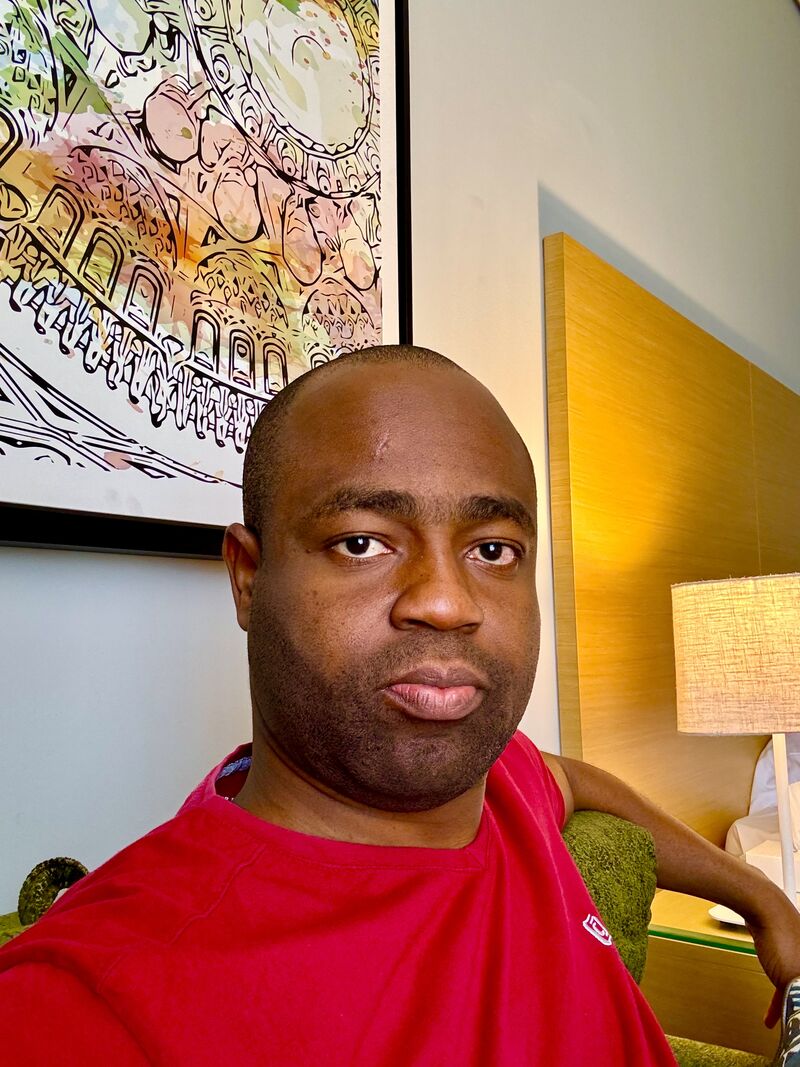
Challenges of Managing a Remote Project Team: The Way Forward
By: Dr. Chidiebere Nwachukwu Ebube
Project Management August 1, 2025
Having managed projects at Vidan Solutions Ltd. remotely for the past 3 years, I can boldly say: remote project management comes with its unique set of challenges—often more daunting than those faced with in-person teams.
Here are a few critical challenges:
- Motivating team members is harder virtually, as body language and physical presence are missing.
- Without a proper communication management plan—heavily tech-driven—projects risk derailing quickly.
- Remote teams may remain stuck at the "norming" or "storming" phase of team development longer, especially if team members are unfamiliar with each other.
- Accountability drops without physical supervision.
- Virtual meetings are often less respected—people show up late, get distracted, or keep their cameras off.
Solutions that work:
- Choose a collaborative platform with robust messaging and notification features.
- Establish a strong communication management plan.
- Start meetings with icebreakers to build connection before diving into the agenda.
- Check in with team members individually to show genuine care—it boosts morale and effort.
- Automate processes and centralize project documentation to avoid version confusion.
- Always consider time zones and find fair meeting times for all.
- Insist on video during meetings for accountability and engagement.
Feel free to add your own tips in the comments. Remote project management isn’t easy, but with intentional effort and smart tools, you can make it work—beautifully.
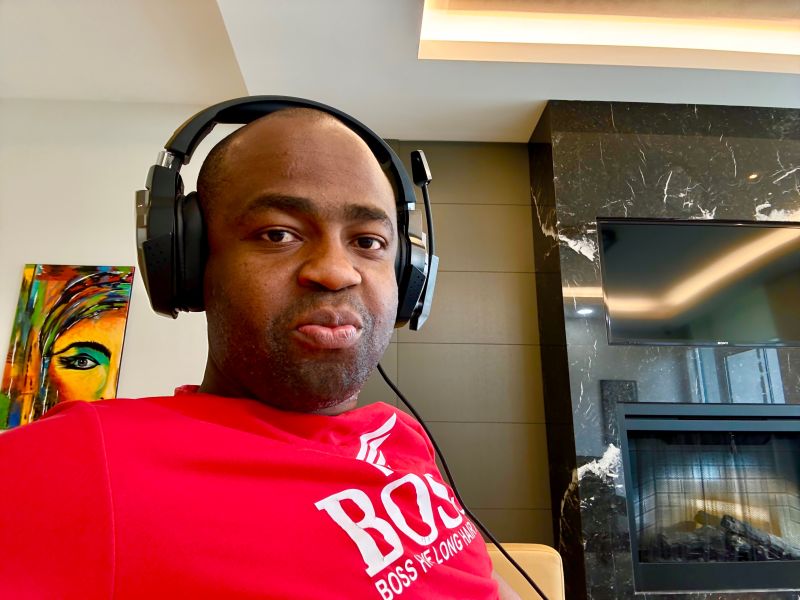
Why Unchecked Optimism Is a Negative Quality for a Project Manager
By: Dr. Chidiebere Nwachukwu Ebube
Project Management August 1, 2025
I was recently managing a time-sensitive project, and an official we were counting on to approve a critical phase couldn't deliver for two straight days. Day 1? An emergency holiday due to storm-induced flooding. Day 2? Internet blackout—probably still storm-related. 🤷
We live in an imperfect world. As much as we plan and hope, things *will* go off-script. Something almost always does.
That document you were sure would be signed tomorrow? The signer might call in sick, lose a loved one, get in an accident, or even misplace their work device.
That ever-reliable supplier? They might have their goods held at the port, receive wrong stock from their own supplier, face a price hike, or worse—get robbed in transit. Trucks break down, systems fail, and humans… well, we’re human.
But here's the paradox: while most of these disasters *don’t* happen, the *risk* that they might is ever-present.
That’s why unchecked optimism is dangerous in project management.
You must plan for what could go wrong. Build a robust risk management plan. Add budget and time buffers to your most realistic estimates. Follow up diligently with people working on critical-path activities. Buy insurance. Monitor early signs of trouble. Be ready to mitigate, avoid, or transfer risks swiftly.
At the end of the day, the weight of delivery rests on your shoulders. Your value lies in steering the project through uncertainty to successful completion. So when the unexpected strikes—and it will—be ready to brief your steering committee honestly, request necessary adjustments, and realign the project path.
One final lesson: “Ignorance is bliss” is not a project management mantra. If you must lean toward an extreme, let it be realism—leaning even a bit toward pessimism may serve you better than floating on blind optimism.
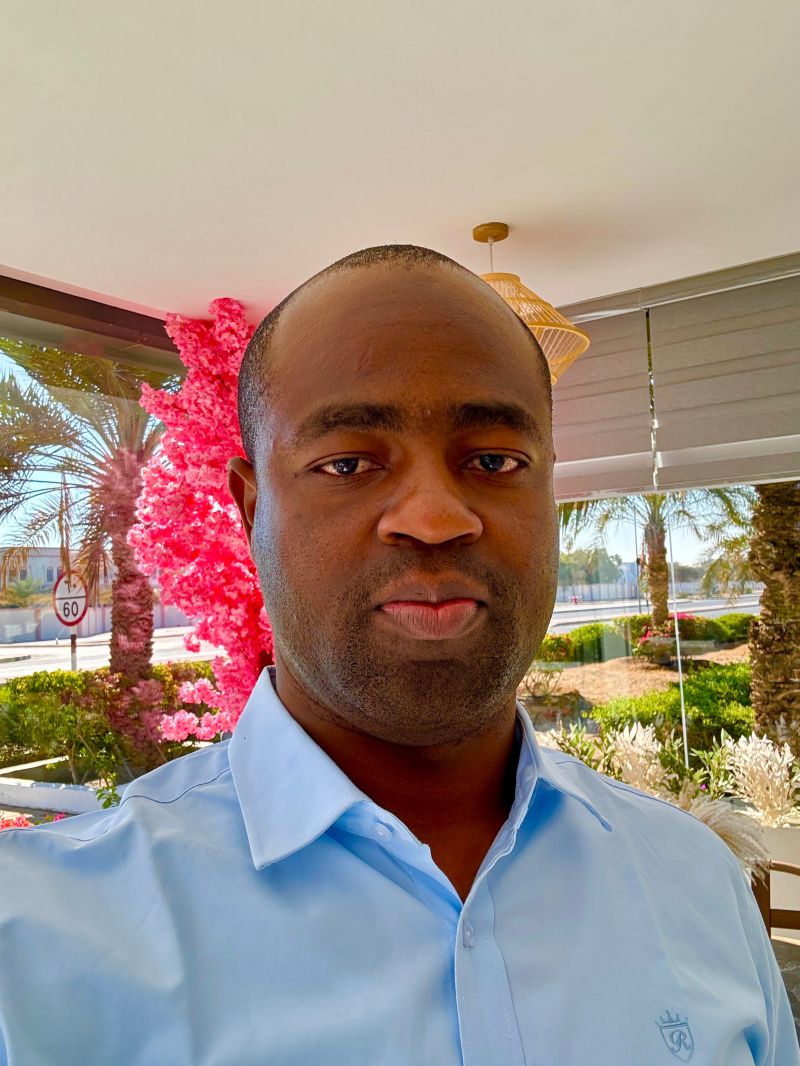
MY FIRST EVER CLINICAL RESEARCH PROJECT
By: Dr. Chidiebere Nwachukwu Ebube
In retrospect—and with what I now know as a project manager—I’m still amazed at how we pulled off that project with zero understanding of project management principles.
Back in 2011/2012, as a penultimate-year medical student, I led a team of four on a research project titled: “Nutritional Assessment in Children 6–12 Years Old in a Rural Area in Enugu, Nigeria.”
We struggled at every stage—design, planning, data collection—because we never set up a structured study protocol or treated it like a real project. We were just reacting to issues as they came—classic firefighting.
As the lead, I bore the brunt of it. I had to put in a lot more effort than everyone else just to keep things from falling apart.
Miraculously, we completed the study on time, and it was even published in Medikka, a research journal by MEDRHUS, the student research group on campus back then. I still have a copy of that journal today.
But it wasn’t until years later—after earning my PMP and taking a clinical project management course—that I realized just how much we “winged it.” We didn’t even have a risk management plan! 😄
But that’s the beauty of growth: you look back, laugh at the chaos, and appreciate the journey.